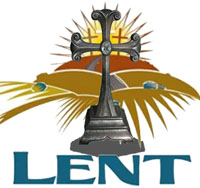|
|
 |
12 Once, when he was in one of the cities, there was a man covered with leprosy. When he saw Jesus, he bowed with his face to the ground and begged him, "Lord, if you choose, you can make me clean." 13 Then Jesus stretched out his hand, touched him, and said, "I do choose. Be made clean." Immediately the leprosy left him. 14 And he ordered him to tell no one. "Go," he said, "and show yourself to the priest, and, as Moses commanded, make an offering for your cleansing, for a testimony to them." 15 But now more than ever the word about Jesus spread abroad; many crowds would gather to hear him and to be cured of their diseases. 16 But he would withdraw to deserted places and pray.We have completed almost a week of the great lent. The 50 day lent observed in the Jacobite Syrian Orthodox Church seeks to impart a lesson on goodness in the lives of church members. The lent which also is inspired by the 40 day fasting of Jesus encourages the faithful to fast till noon and follow diet restrictions along with special prayers and helping those in need. The incident of the healing of the leper found in St. Luke 5:12-16 has a leper who calls upon Jesus to touch him and cleanse him if he so chooses. Choice is critical for our spirituality. This is so because choice decides on whether we end up doing good or bad. Discount sales bring about people who either stand and watch in awe the products which are being given for a discount, or people who stand and watch what other people are choosing or people who grab everything they can, whether it is important for them or not. Choice is important and people choose in different ways. But our choice has high ramifications not only for us but for others. So when the leper asks Jesus to choose he is asking him to make an informed and just choice. Jesus chooses to touch the leper and make him clean. The conversation between the leper and Jesus can be seen as a symbolism for lent. It is a symbolism of those who we are in touch with, seeking the goodness of the cleanness of lent that we claim. Lent can be seen in three different ways. 1. Lent is a time to clean up our act. Many of us are interested in bringing about personal change during lent. Personal piety becomes a way of bringing about this change. But we never go the full distance of righting our wrongs and doing penance for the mistakes we have committed. Perhaps we are being challenged by those who have been pushed away. The challenge is to clean up our act and show that we have indeed become better persons. Jesus brings about a cleaning up act when he touches the leper. It is to say in a way that he has cleaned himself of societal notions of disease and perfection. 2. Lent is a time to look at inward beauty. India is still obsessed with women and men who want to look fair. So much that fairness becomes the aspect of looking good or bad. But lent offers a time to know that beauty lies within and not outside. It is therefore not dependent on outward notions of beauty which have been passed on to us by the society we live in. The leper did not pass the test of outward beauty as seen by the society at that point of time. He then becomes an outcast. When Jesus says yes and touches him, he observes the inward beauty of the man with leprosy. Disease as we see it is a construct of a society which thinks it is perfect. This perfection gives the notion of healthy and diseased, strong and weak. But lent offers us a time to think and understand that inward dietary restrictions and piety should lead to the understanding that beauty lies inside and cannot be measured by outward notions of good or bad. 3. Lent gives us an excellent opportunity to cleanse ourselves of leprosy and all bad thoughts. Our effort is towards bringing about inward change. This inward change is in the direction of seeking to clean ourselves of all sorts of competition, perfection, notion of beauty and judgement. So we should see ourselves in the place of Jesus. His courage to make a choice and say yes becomes a Lenten challenge before us. This is a challenge to change so that we accept others as they are, instead of judging them. Lent thus gives us an opportunity to say that our diet restrictions are going to make us refrain from judging and talking about others. It instead gives us an opportunity to work on ourselves so that others may benefit. Lent therefore is a time to understand this deep presence of God inside us. God's love for us is unconditional and not based on the fulfilling of certain parameters. Every day of lent should be spent in this understanding that the leprosy in our eyes, and way of looking and understanding needs to be changed and the leper in the story will helps us for that. Let this lent be a time of realization and not self actualization and self praise. Let it rather be a celebration of life where those around us will be blessed and happy by our presence and intervention. Source: Excerpted from a sermon preached in St. Mary's JSO Cathedral, Bangalore on March 9, 2014.
See Also:
Great Lent Home | Sermons Home | General Sermons and Essays | Articles Home | Library - Home | Baselios Church Home
-------
Malankara World
A service of St. Basil's Syriac Orthodox
Church, Ohio
Copyright © 2009-2020 - ICBS Group. All Rights Reserved.
Disclaimer
Website designed, built, and hosted by
International Cyber Business Services, Inc., Hudson, Ohio